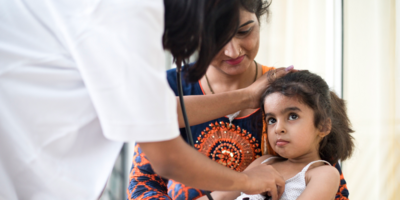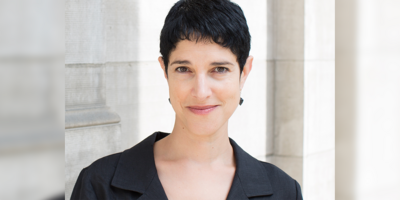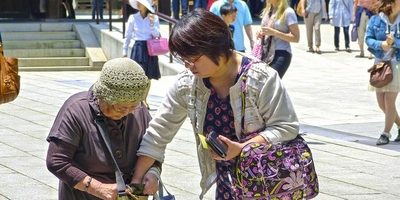
Removing sex and gender bias to improve care, starting with COVID-19
SYDNEY, JUNE 25 - The novel coronavirus is the latest example of a disease that affects men and women differently – although more women are being infected with COVID-19, in many countries in the world, more men are dying as a result of the disease.
Two new research projects from the Australian Human Rights Institute and The George Institute for Global Health will investigate reasons for these differences and further build the case for removing the sex and gender bias from medical research that can prevent patients from getting the most effective care.
The COVID-19 study recognises that the gendered impacts of COVID-19 have not been adequately addressed in policies and public health efforts for affected patients, vulnerable women and health workers. Set to run through to February 2021, the project is supported by the UNSW Sydney Rapid Response Research fund for COVID-19, and includes:
- a gender disaggregated analysis (where data for men and women are studied separately) of global COVID-19 statistics, national policies and activities;
- mapping the activity of health and frontline family violence services during the pandemic, as well as capacity and regulatory responses;
- a gender disaggregated survey of health workers on the frontline of COVID-19.
The study will inform strategies that can reach people most in need during the pandemic and will contribute to longer-term policy reform to better consider sex and gender in future research into other illnesses.
The second project, “Sex and Gender in Medical Research” is a three-year project. Made possible by a substantial gift from a philanthropic fund, it aims to produce a significant innovation in Australian medical research by:
- understanding the current sex and gender gaps in the Australian medical research system – from medical research funding, to lab-based research practices, to research dissemination methods.
- reviewing and identifying international models and best practice,
- developing health economic models incorporating sex and gender outcomes providing decision support for health and research investment,
- and implementing new policy frameworks for effectively transforming all critical points in the medical research pipeline to improve the outcomes of research for men and women.
Early stage medical research is typically carried out on male mice or male cells, and human research conducted mainly in men, with the results then generalised for both men and women.
However, many diseases are different for males and females, and drugs react differently due to variations in physiology. Relying on evidence that has been generated only in men can lead to false assumptions about how women experience disease, and poorer outcomes from treatment can result.
For example, heart disease is a leading cause of illness and death for Australian women, yet it continues to be perceived mainly as a disease of men.
Women actually have a significantly higher mortality rate than men but present later, and experience greater delays in diagnosis and treatment because the methods used to diagnose and treat heart disease are based on research that has been conducted in men.
On the other hand, osteoporosis is often considered a postmenopausal women’s disease, yet men account for nearly a third of osteoporosis-related hip fractures.
The Australian Human Rights Institute’s Director, Professor Louise Chappell, says ignoring sex and gender differences in medical research has huge implications for patients, and also for the economy.
“The short-term impacts of this sex and gender bias can be life-threatening due to misdiagnosis or ineffective treatments,” Professor Chappell says. “In the long-term, there are implications for not only the health system, but social services and aged care. Ultimately, access to health care is a fundamental human right, and this project is about extending those rights to everyone”
Whether for treating COVID-19 or other medical issues, The George Institute’s Principal Director, Professor Robyn Norton AO, said “It’s long past time that the field of medicine recognises that women and men often suffer differently and heal differently for similar conditions. We need to acknowledge that women and men are different in many ways and develop better research on sex and gender differences so we can drive better treatment, care and outcomes.”
The project will involve experts from a range of fields at UNSW Sydney, The George Institute for Global Health, University of Melbourne and Bupa Australia.











